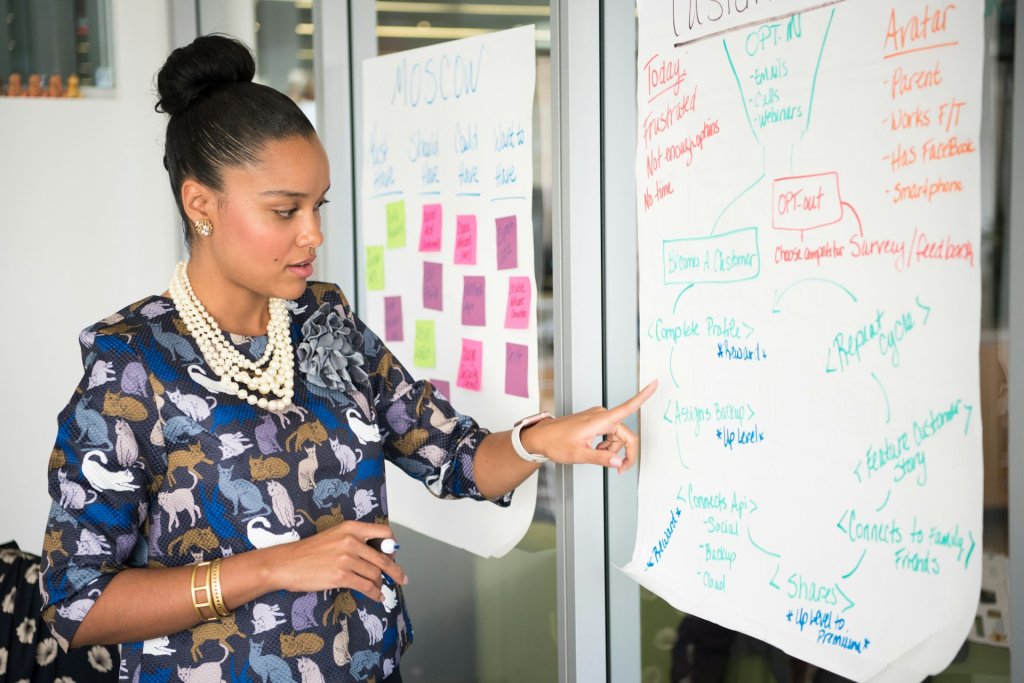Discover Starfolk’s expertly written eBooks on programming, frameworks, and web tools — from beginner basics to pro-level skills. Shop Now & Start Building →
What is Coding all about?
What is Coding?
Coding, also known as programming, is the process of creating instructions for computers to follow. These instructions, written in various programming languages, tell a computer how to perform specific tasks. Think of coding as the language we use to communicate with computers and tell them what to do. Just as we use different languages to communicate with each other, computers understand different programming languages, each designed for specific tasks and applications.
At its core, coding involves writing lines of code, which are the building blocks of software, applications, and websites. These lines of code form algorithms and data structures that instruct the computer on how to execute tasks, process data, and respond to user inputs. For example, when you click a button on a website, the code behind the scenes determines what happens next – whether it’s displaying a new page, playing a video, or submitting a form.
There are many programming languages, each with its syntax and use cases. Some of the most popular languages include Python, JavaScript, Java, C++, and Ruby. Each language has its strengths and is chosen based on the specific needs of the project. For instance, Python is renowned for its simplicity and readability, making it a great choice for beginners and for tasks like data analysis and machine learning. JavaScript, on the other hand, is essential for web development, enabling interactive features on websites.
Coding is more than just writing instructions; it’s about problem-solving and logical thinking. Coders, or programmers, must break down complex problems into smaller, manageable parts and create step-by-step solutions. This process requires analytical skills and creativity, as there can be multiple ways to solve a problem through code.
In essence, coding is the foundation of the digital world. Every app on your phone, every game you play, and every website you visit relies on code to function. By learning to code, you gain the ability to create your own digital solutions, understand how technology works, and even pursue a career in one of the fastest-growing fields in the world.
Unlock Your Web Development Potential
Are you eager to dive into the world of web development but unsure where to start? "HTML Ignition: The Ultimate Guide" is your ultimate guide to building stunning, responsive websites from scratch. Whether you're a complete beginner or looking to polish your skills, this ebook is designed to help you master the essentials of HTML and CSS with ease and confidence.
What You'll Learn:
Foundations of HTML: Understand the structure of web pages and learn to create clean, semantic HTML code.
CSS Fundamentals: Discover how to style your web pages with CSS, including layout techniques, color theory, and typography.
Responsive Design: Build websites that look great on all devices, from desktops to smartphones.
Practical Exercises: Apply your knowledge with hands-on exercises and real-world projects.
Advanced Techniques: Explore advanced topics like animations, transitions, and CSS Grid and Flexbox.
Why Choose "HTML Ignition: The Ultimate Guide"?
Beginner-Friendly: Step-by-step tutorials and clear explanations make learning easy and enjoyable.
Real-World Examples: Learn through practical examples that you can immediately apply to your own projects.
Comprehensive Coverage: Everything you need to know to build beautiful, functional websites.
Additional Resources: Gain access to exclusive templates, cheat sheets, and a supportive community of learners.
Who Is This Ebook For?
Aspiring Web Developers: Kickstart your journey into web development with a solid foundation.
Students and Hobbyists: Enhance your skills and build impressive web projects.
Career Changers: Transition into a rewarding tech career with confidence.
Bonus: Exclusive Access to Our Online Community
When you purchase "HTML Ignition: The Ultimate Guide," you also gain access to our exclusive online community. Connect with fellow learners, share your projects, get feedback, and stay updated with the latest trends in web development.
Don't Wait – Start Building Today!
Ready to turn your web development dreams into reality? "HTML Ignition: The Ultimate Guide" is your key to creating stunning websites and opening doors to new opportunities. Download your copy today and embark on a transformative learning journey.
Why is Coding Important?
In today’s technology-driven world, coding is not just a valuable skill—it's a foundational element that powers much of the digital infrastructure we rely on daily. Understanding why coding is important helps us appreciate its profound impact on modern society and individual opportunities. Here are several reasons why coding is essential:
“Learning to write programs stretches your mind and helps you think better, creates a way of thinking about things that I think is helpful in all domains.”
Driving Technological Innovation
Coding is the backbone of innovation in technology. It enables the creation of software applications, websites, and digital tools that transform how we live and work. From the apps on our smartphones to complex systems managing global networks, coding fuels progress and the development of new technologies.
Empowering Problem Solving
Coding teaches logical thinking and problem-solving skills. When writing code, developers break down complex problems into manageable steps, fostering a methodical approach to troubleshooting and finding solutions. These skills are not only valuable in tech-related fields but also in everyday life and various professions.
Enhancing Career Opportunities
The demand for coding skills in the job market is higher than ever. Professions in software development, data science, cybersecurity, and many other areas require coding expertise. Learning to code can open doors to high-paying, fulfilling careers in a variety of industries. Furthermore, many non-technical jobs increasingly value coding skills as they contribute to better productivity and innovation.
Enabling Digital Literacy
In an era where digital literacy is as crucial as traditional literacy, coding is a key component. Understanding how software and applications work empowers individuals to navigate and use digital tools more effectively. It also provides a deeper understanding of the technology that shapes our world, making us more informed and capable users.
Facilitating Automation and Efficiency
Coding allows for the automation of repetitive tasks, increasing efficiency and productivity. By writing scripts and programs, individuals and businesses can streamline operations, reduce errors, and save valuable time. This ability to automate processes is critical in various sectors, from finance and healthcare to manufacturing and marketing.
Promoting Creativity and Innovation
Coding is a creative endeavor. It gives individuals the power to bring their ideas to life, whether through developing a unique app, designing a game, or creating a personal blog. This creative potential encourages innovation and experimentation, leading to new and exciting advancements.
Building the Future
The future of work, education, and communication is increasingly digital. By learning to code, individuals equip themselves with the skills necessary to participate in and contribute to this future. Coding knowledge fosters an understanding of emerging technologies like artificial intelligence, blockchain, and the Internet of Things (IoT), positioning individuals at the forefront of technological evolution.
Encouraging Collaboration
Coding often involves working in teams, fostering collaboration and communication skills. Through coding projects, individuals learn to work with others, share knowledge, and build collective solutions. This collaborative aspect of coding mirrors the interconnected nature of our modern world and prepares individuals for team-oriented work environments.
What are some common programming languages?
“A language that doesn't affect the way you think about programming is not worth knowing.”
Coding involves using various programming languages to communicate with computers and create software applications. Each language has its own unique syntax, purpose, and strengths. Here are some of the most popular programming languages:
Python
Python is known for its readability and simplicity, making it an excellent choice for beginners. Its versatile nature allows it to be used in web development, data analysis, artificial intelligence, scientific computing, and more. The vast number of libraries and frameworks available for Python, such as Django for web development and TensorFlow for machine learning, further enhance its appeal.
JavaScript
JavaScript is the backbone of web development, allowing developers to create interactive and dynamic web pages. It is primarily used for client-side scripting but can also be employed on the server-side with environments like Node.js. Popular frameworks and libraries such as React, Angular, and Vue.js are built on JavaScript, making it indispensable for front-end development.
Java
Java is a highly versatile and widely-used programming language, known for its portability across platforms thanks to the Java Virtual Machine (JVM). It is commonly used in large-scale enterprise applications, Android app development, and web applications. Its strong object-oriented principles and robust security features make it a reliable choice for many developers.
C++
C++ is an extension of the C programming language, adding object-oriented features and other enhancements. It is widely used in system/software development, game development, and performance-critical applications. C++ provides fine-grained control over system resources and memory, making it a powerful but complex language.
Ruby
Ruby is known for its elegant syntax and ease of use, often described as a language that prioritizes developer happiness. It is the language behind the Ruby on Rails framework, which simplifies web application development by providing default structures for databases, web services, and web pages. Ruby's emphasis on simplicity and productivity makes it a favorite among startups and rapid development projects.
Unlock Your Web Development Potential
Are you eager to dive into the world of web development but unsure where to start? "HTML Ignition: The Ultimate Guide" is your ultimate guide to building stunning, responsive websites from scratch. Whether you're a complete beginner or looking to polish your skills, this ebook is designed to help you master the essentials of HTML and CSS with ease and confidence.
What You'll Learn:
Foundations of HTML: Understand the structure of web pages and learn to create clean, semantic HTML code.
CSS Fundamentals: Discover how to style your web pages with CSS, including layout techniques, color theory, and typography.
Responsive Design: Build websites that look great on all devices, from desktops to smartphones.
Practical Exercises: Apply your knowledge with hands-on exercises and real-world projects.
Advanced Techniques: Explore advanced topics like animations, transitions, and CSS Grid and Flexbox.
Why Choose "HTML Ignition: The Ultimate Guide"?
Beginner-Friendly: Step-by-step tutorials and clear explanations make learning easy and enjoyable.
Real-World Examples: Learn through practical examples that you can immediately apply to your own projects.
Comprehensive Coverage: Everything you need to know to build beautiful, functional websites.
Additional Resources: Gain access to exclusive templates, cheat sheets, and a supportive community of learners.
Who Is This Ebook For?
Aspiring Web Developers: Kickstart your journey into web development with a solid foundation.
Students and Hobbyists: Enhance your skills and build impressive web projects.
Career Changers: Transition into a rewarding tech career with confidence.
Bonus: Exclusive Access to Our Online Community
When you purchase "HTML Ignition: The Ultimate Guide," you also gain access to our exclusive online community. Connect with fellow learners, share your projects, get feedback, and stay updated with the latest trends in web development.
Don't Wait – Start Building Today!
Ready to turn your web development dreams into reality? "HTML Ignition: The Ultimate Guide" is your key to creating stunning websites and opening doors to new opportunities. Download your copy today and embark on a transformative learning journey.
PHP
PHP is a server-side scripting language specifically designed for web development. It is widely used to build dynamic web pages and is embedded into HTML. PHP powers many popular content management systems (CMS) like WordPress, Drupal, and Joomla, making it a critical language for web developers.
Swift
Swift is a programming language developed by Apple for iOS and macOS application development. It is designed to be safe, fast, and expressive, making it easier for developers to write reliable and efficient code. Swift's modern syntax and features have made it the preferred language for iPhone, iPad, and Mac applications.
Each of these programming languages has its own set of strengths and ideal use cases. The choice of language often depends on the specific requirements of the project, the developer's familiarity with the language, and the development environment. Exploring these languages can open up numerous possibilities in the world of coding and software development.
How Does Coding Work?
At its core, coding is the process of writing instructions for computers to perform specific tasks. These instructions are written in programming languages, which act as a bridge between human language and machine language.
“Programs are meant to be read by humans and only incidentally for computers to execute.”
To understand how coding works, let’s break it down into a few fundamental concepts:
Source Code
Source code is the set of instructions written by a programmer using a programming language. It can range from a few lines to millions of lines, depending on the complexity of the software. Each programming language has its own syntax and rules, which the programmer must follow to write correct and efficient code.
Compilers and Interpreters
To transform source code into a format that a computer can understand, we use compilers and interpreters:
Compilers translate the entire source code of a program into machine code (binary code) before the program runs. This machine code is then executed by the computer's hardware. Examples of compiled languages include C, C++, and Go.
Interpreters, on the other hand, translate and execute the source code line by line. This means the program runs directly from the source code without the need for a separate compilation step. Examples of interpreted languages include Python, JavaScript, and Ruby.
Some languages, like Java, use a combination of both approaches. Java code is first compiled into an intermediate form called bytecode, which is then interpreted by the Java Virtual Machine (JVM).
Execution
Once the code is translated into machine language, it can be executed by the computer's central processing unit (CPU). The CPU follows the instructions to perform tasks, such as calculations, data processing, and controlling other hardware components. The execution flow typically involves:
Input: Receiving data from the user or another system.
Processing: Performing operations on the input data as instructed by the code.
Output: Displaying or storing the results of the processing.
Debugging and Testing
An essential part of coding is ensuring that the code works correctly and efficiently. This involves debugging and testing:
Debugging: The process of identifying and fixing errors (bugs) in the code. Programmers use various tools and techniques to locate bugs and understand why they occur.
Testing: Systematically checking that the code behaves as expected under different conditions. This can involve unit tests (testing individual parts of the code), integration tests (testing how different parts of the code work together), and system tests (testing the entire application).
Deployment
After the code has been written, compiled or interpreted, and tested, it is ready for deployment. Deployment involves moving the code to a production environment where it can be accessed and used by end-users. This may include setting up servers, configuring databases, and ensuring that the application is secure and scalable.
Coding is a structured process that starts with writing human-readable instructions and ends with executing these instructions on a computer. This process involves several steps, including writing source code, translating it into machine language, executing it, and debugging and testing to ensure it performs as intended. Through coding, we can create everything from simple scripts to complex software systems that drive modern technology.
What are the Different Areas of Coding?
Coding is a vast field with numerous specializations, each catering to different aspects of technology and software development. Here are some of the key areas within coding:
Web Development
Web development involves creating websites and web applications. This area is typically divided into two main parts:
Front-End Development: This is the part of the website that users interact with. Front-end developers use languages like HTML, CSS, and JavaScript to build the layout, design, and interactive elements of a website.
Back-End Development: This is the server side of a website, where the focus is on databases, server logic, and application integration. Back-end developers use languages like Python, Ruby, PHP, and Java to handle data processing, storage, and communication between the server and client.
Unlock Your Web Development Potential
Are you eager to dive into the world of web development but unsure where to start? "HTML Ignition: The Ultimate Guide" is your ultimate guide to building stunning, responsive websites from scratch. Whether you're a complete beginner or looking to polish your skills, this ebook is designed to help you master the essentials of HTML and CSS with ease and confidence.
What You'll Learn:
Foundations of HTML: Understand the structure of web pages and learn to create clean, semantic HTML code.
CSS Fundamentals: Discover how to style your web pages with CSS, including layout techniques, color theory, and typography.
Responsive Design: Build websites that look great on all devices, from desktops to smartphones.
Practical Exercises: Apply your knowledge with hands-on exercises and real-world projects.
Advanced Techniques: Explore advanced topics like animations, transitions, and CSS Grid and Flexbox.
Why Choose "HTML Ignition: The Ultimate Guide"?
Beginner-Friendly: Step-by-step tutorials and clear explanations make learning easy and enjoyable.
Real-World Examples: Learn through practical examples that you can immediately apply to your own projects.
Comprehensive Coverage: Everything you need to know to build beautiful, functional websites.
Additional Resources: Gain access to exclusive templates, cheat sheets, and a supportive community of learners.
Who Is This Ebook For?
Aspiring Web Developers: Kickstart your journey into web development with a solid foundation.
Students and Hobbyists: Enhance your skills and build impressive web projects.
Career Changers: Transition into a rewarding tech career with confidence.
Bonus: Exclusive Access to Our Online Community
When you purchase "HTML Ignition: The Ultimate Guide," you also gain access to our exclusive online community. Connect with fellow learners, share your projects, get feedback, and stay updated with the latest trends in web development.
Don't Wait – Start Building Today!
Ready to turn your web development dreams into reality? "HTML Ignition: The Ultimate Guide" is your key to creating stunning websites and opening doors to new opportunities. Download your copy today and embark on a transformative learning journey.
Mobile App Development
Mobile app development focuses on creating applications for mobile devices such as smartphones and tablets. There are two main platforms:
iOS Development: Apps for Apple's iOS are usually developed using Swift or Objective-C.
Android Development: Apps for Android devices are commonly built using Java or Kotlin.
There are also cross-platform frameworks like React Native and Flutter that allow developers to write code that runs on both iOS and Android.
Game Development
Game development is a specialized area that combines creativity with technical skills to create interactive games. Developers use languages like C++, C#, and specialized game development platforms like Unity and Unreal Engine to bring games to life. This field includes roles such as game designers, developers, and testers.
Data Science and Machine Learning
Data science involves using coding to analyze and interpret complex data. This field often uses languages like Python and R. Machine learning, a subset of data science, involves creating algorithms that allow computers to learn from and make decisions based on data. Popular libraries and frameworks for machine learning include TensorFlow, Keras, and Scikit-learn.
Embedded Systems Development
Embedded systems development involves programming small, specialized computing devices that are part of larger systems. These devices could be anything from a microwave oven to a car's navigation system. Languages like C and C++ are commonly used in this area due to their efficiency and control over hardware.
Cybersecurity
Cybersecurity coding focuses on protecting systems, networks, and programs from digital attacks. This area involves writing code to create security protocols, detect vulnerabilities, and respond to security incidents. Python and C are popular languages in cybersecurity due to their flexibility and low-level capabilities.
Artificial Intelligence (AI)
AI development involves creating systems that can perform tasks that typically require human intelligence, such as understanding natural language, recognizing images, and making decisions. Languages like Python are heavily used in AI development because of their simplicity and the vast number of available libraries and frameworks.
DevOps and Automation
DevOps (Development and Operations) combines software development with IT operations to shorten the development lifecycle and provide continuous delivery. Automation in this area involves writing scripts to automate tasks such as deployment, testing, and monitoring. Languages like Python, Ruby, and shell scripting are often used in DevOps.
Each of these areas requires different skills and knowledge, and they often overlap. As you explore coding, you might find yourself drawn to one or more of these specializations, each offering unique challenges and opportunities.
What are some real-world applications of coding?
Coding plays a pivotal role in nearly every aspect of modern life. From the devices we use daily to the services that make our lives easier, coding is the backbone of countless applications. Here are some key examples of how coding is used in everyday life:
Smartphones and Mobile Apps
Smartphones have become an integral part of our lives, and coding is at the heart of their functionality. Mobile operating systems like Android and iOS are built using programming languages such as Java, Swift, and Kotlin. Apps for everything from social media (like Facebook and Instagram) to productivity (like Microsoft Office and Google Workspace) are created through coding. These apps rely on complex algorithms and code to provide seamless user experiences.
Smart Appliances
The rise of the Internet of Things (IoT) has brought smart appliances into our homes. These devices, which include smart thermostats, refrigerators, and security systems, are embedded with software that allows them to connect to the internet and communicate with other devices. For example, a smart thermostat uses code to learn your schedule and adjust the temperature accordingly, while smart speakers like Amazon Echo and Google Home use code to understand voice commands and perform tasks.
Online Services and E-commerce
The websites and online services we use daily are all built with code. E-commerce platforms like Amazon, eBay, and Shopify use coding languages such as HTML, CSS, JavaScript, and SQL to create interactive and secure shopping experiences. Coding ensures that payment gateways are secure, user data is protected, and inventory is managed efficiently.
Gaming
The gaming industry is a major beneficiary of coding. From simple mobile games like Candy Crush to complex console games like The Witcher and Grand Theft Auto, coding brings virtual worlds to life. Game development involves languages such as C++, Java, and specialized game development platforms like Unity and Unreal Engine. These tools help create graphics, manage physics engines, and develop gameplay mechanics.
Healthcare Technology
In healthcare, coding is used to develop applications that improve patient care and streamline medical processes. Electronic Health Records (EHR) systems, telemedicine platforms, and health monitoring apps are all products of coding. For example, apps that track fitness and health metrics, such as Fitbit and MyFitnessPal, use code to collect data from sensors and provide actionable insights.
Financial Services
Banking and financial services rely heavily on coding to manage transactions, detect fraud, and provide online banking solutions. Algorithms are used for trading stocks, managing accounts, and analyzing financial data. Mobile banking apps, like those from Chase or Wells Fargo, are built with code to ensure secure transactions and user-friendly interfaces.
Transportation and Navigation
Transportation systems, including ride-sharing services like Uber and Lyft, use code to match drivers with passengers, calculate fares, and optimize routes. Navigation apps like Google Maps and Waze rely on coding to provide real-time traffic updates, directions, and estimated arrival times. Autonomous vehicles, an emerging technology, use complex coding to interpret data from sensors and make driving decisions.
Coding is omnipresent in our daily lives, powering the technology that makes our routines more efficient and our experiences richer. As we continue to advance technologically, the role of coding will only become more significant, driving innovation and transforming the way we live and work.
How can someone start learning to code?
Starting your journey into coding can seem daunting, but with the right approach and resources, anyone can learn to code. Here are some steps to get you started:
Choose a Programming Language:
Begin with a language that is beginner-friendly and widely used. Python is a great choice because of its simple syntax and readability. JavaScript is another excellent option, especially if you’re interested in web development.
Unlock Your Web Development Potential
Are you eager to dive into the world of web development but unsure where to start? "HTML Ignition: The Ultimate Guide" is your ultimate guide to building stunning, responsive websites from scratch. Whether you're a complete beginner or looking to polish your skills, this ebook is designed to help you master the essentials of HTML and CSS with ease and confidence.
What You'll Learn:
Foundations of HTML: Understand the structure of web pages and learn to create clean, semantic HTML code.
CSS Fundamentals: Discover how to style your web pages with CSS, including layout techniques, color theory, and typography.
Responsive Design: Build websites that look great on all devices, from desktops to smartphones.
Practical Exercises: Apply your knowledge with hands-on exercises and real-world projects.
Advanced Techniques: Explore advanced topics like animations, transitions, and CSS Grid and Flexbox.
Why Choose "HTML Ignition: The Ultimate Guide"?
Beginner-Friendly: Step-by-step tutorials and clear explanations make learning easy and enjoyable.
Real-World Examples: Learn through practical examples that you can immediately apply to your own projects.
Comprehensive Coverage: Everything you need to know to build beautiful, functional websites.
Additional Resources: Gain access to exclusive templates, cheat sheets, and a supportive community of learners.
Who Is This Ebook For?
Aspiring Web Developers: Kickstart your journey into web development with a solid foundation.
Students and Hobbyists: Enhance your skills and build impressive web projects.
Career Changers: Transition into a rewarding tech career with confidence.
Bonus: Exclusive Access to Our Online Community
When you purchase "HTML Ignition: The Ultimate Guide," you also gain access to our exclusive online community. Connect with fellow learners, share your projects, get feedback, and stay updated with the latest trends in web development.
Don't Wait – Start Building Today!
Ready to turn your web development dreams into reality? "HTML Ignition: The Ultimate Guide" is your key to creating stunning websites and opening doors to new opportunities. Download your copy today and embark on a transformative learning journey.
Set Clear Goals:
Determine what you want to achieve with coding. Are you interested in building websites, developing apps, or analyzing data? Having clear goals will help you stay focused and motivated.
Find Quality Learning Resources:
Online Tutorials and Courses:
Websites like Codecademy, Coursera, and Udemy offer structured courses for beginners. These platforms often include interactive exercises and projects to practice your skills.
Books:
There are many excellent books for beginners, such as "Automate the Boring Stuff with Python" by Al Sweigart and "Eloquent JavaScript" by Marijn Haverbeke.
YouTube:
Many experienced programmers share tutorials and tips on YouTube. Channels like freeCodeCamp and The Net Ninja offer comprehensive video tutorials.
Practice Regularly:
Coding is a skill best learned by doing. Set aside time each day or week to practice coding. Start with small projects and gradually take on more complex challenges.
Join Coding Communities:
Becoming part of a coding community can provide support, motivation, and valuable feedback. Websites like Stack Overflow, GitHub, and Reddit have active communities where you can ask questions, share your projects, and learn from others.
Build Projects:
Apply what you’ve learned by building your own projects. Start with simple projects like a personal website, a to-do list app, or a basic game. As you gain more confidence, tackle more advanced projects.
Participate in Coding Challenges:
Websites like LeetCode, HackerRank, and Codewars offer coding challenges that can help you improve your problem-solving skills and learn new techniques. Participating in these challenges can also be a fun and rewarding way to practice coding.
Seek Feedback and Iterate:
Don’t be afraid to ask for feedback on your code. More experienced programmers can offer insights and suggestions for improvement. Use their feedback to iterate and refine your coding skills.
Stay Persistent and Patient:
Learning to code is a journey that requires persistence and patience. Don’t get discouraged by setbacks or challenges. Celebrate your progress, no matter how small, and keep pushing forward.
Tools and Resources for Coders
Having the right tools and resources can significantly enhance your productivity and effectiveness. Whether you're a beginner exploring your first lines of code or an experienced developer working on complex projects, here are some essential tools and resources you should know about:
Integrated Development Environments (IDEs)
Visual Studio Code: A popular, free IDE from Microsoft with a wide range of extensions for different programming languages.
IntelliJ IDEA: Particularly favored for Java development, it offers powerful coding assistance and productivity tools.
PyCharm: Ideal for Python developers, offering features like code completion, debugging, and intelligent code analysis.
Code Editors
Sublime Text: A lightweight yet powerful text editor known for its speed and simplicity, with a rich plugin ecosystem.
Atom: A modern, customizable text editor created by GitHub, featuring a built-in package manager and extensive library of plugins.
Notepad++: A free source code editor and Notepad replacement that supports several programming languages.
Version Control Systems
Git: A distributed version control system essential for tracking changes in source code during software development.
GitHub: A platform built around Git for hosting and collaborating on code repositories, widely used for open-source projects.
Bitbucket: Another Git repository management solution that offers both Git and Mercurial version control.
Unlock Your Web Development Potential
Are you eager to dive into the world of web development but unsure where to start? "HTML Ignition: The Ultimate Guide" is your ultimate guide to building stunning, responsive websites from scratch. Whether you're a complete beginner or looking to polish your skills, this ebook is designed to help you master the essentials of HTML and CSS with ease and confidence.
What You'll Learn:
Foundations of HTML: Understand the structure of web pages and learn to create clean, semantic HTML code.
CSS Fundamentals: Discover how to style your web pages with CSS, including layout techniques, color theory, and typography.
Responsive Design: Build websites that look great on all devices, from desktops to smartphones.
Practical Exercises: Apply your knowledge with hands-on exercises and real-world projects.
Advanced Techniques: Explore advanced topics like animations, transitions, and CSS Grid and Flexbox.
Why Choose "HTML Ignition: The Ultimate Guide"?
Beginner-Friendly: Step-by-step tutorials and clear explanations make learning easy and enjoyable.
Real-World Examples: Learn through practical examples that you can immediately apply to your own projects.
Comprehensive Coverage: Everything you need to know to build beautiful, functional websites.
Additional Resources: Gain access to exclusive templates, cheat sheets, and a supportive community of learners.
Who Is This Ebook For?
Aspiring Web Developers: Kickstart your journey into web development with a solid foundation.
Students and Hobbyists: Enhance your skills and build impressive web projects.
Career Changers: Transition into a rewarding tech career with confidence.
Bonus: Exclusive Access to Our Online Community
When you purchase "HTML Ignition: The Ultimate Guide," you also gain access to our exclusive online community. Connect with fellow learners, share your projects, get feedback, and stay updated with the latest trends in web development.
Don't Wait – Start Building Today!
Ready to turn your web development dreams into reality? "HTML Ignition: The Ultimate Guide" is your key to creating stunning websites and opening doors to new opportunities. Download your copy today and embark on a transformative learning journey.
Online Resources and Communities
Stack Overflow: A community-driven question and answer site where developers can find solutions to coding problems and share knowledge.
GitHub Repositories: Explore and contribute to millions of open-source projects hosted on GitHub, covering a vast array of programming languages and topics.
Codecademy: An interactive learning platform offering courses on various programming languages and development skills.
Documentation and Tutorials
Mozilla Developer Network (MDN): A comprehensive resource for web developers, offering documentation, guides, and tutorials on HTML, CSS, and JavaScript.
Official Language Documentation: Each programming language typically has its official documentation, providing detailed information on syntax, libraries, and best practices.
YouTube Tutorials and Coding Channels: Many developers share tutorials and coding tips on YouTube, making it a valuable resource for visual learners.
Collaboration Tools
Slack: A popular messaging app for teams, useful for real-time communication and collaboration among developers.
Trello: A visual project management tool that helps teams organize tasks and track progress, suitable for agile development.
Google Workspace (formerly G Suite): Offers tools like Google Docs, Sheets, and Drive, facilitating collaborative work and document sharing.
Testing and Deployment
Postman: A collaboration platform for API development, enabling developers to design, test, and document APIs.
Docker: A platform for building, shipping, and running applications in containers, making it easier to deploy software consistently.
Jenkins: An open-source automation server used for continuous integration and continuous deployment (CI/CD) pipelines.
Learning Platforms and Coding Challenges
Coursera, edX: Online platforms offering courses from universities and institutions worldwide, including programming and computer science topics.
LeetCode, HackerRank: Platforms for practicing coding skills through challenges and contests, preparing for technical interviews, and honing algorithmic problem-solving abilities.
Common Challenges in Coding
“Any fool can write code that a computer can understand. Good programmers write code that humans can understand.”
Learning to code can be both rewarding and challenging. Whether you're just starting out or have some experience, here are some common hurdles you might encounter along the way:
Syntax Errors and Debugging
Challenge: Syntax errors occur when code doesn't conform to the language rules, leading to bugs.
Solution: Using a debugger or print statements to trace and fix errors systematically.
Logical Errors
Challenge: Logic errors occur when the code runs but produces incorrect results due to flawed reasoning.
Solution: Careful analysis of the code's logic and step-by-step debugging to identify and correct the errors.
Understanding Algorithms and Data Structures
Challenge: Mastery of algorithms and data structures is crucial but can be complex and abstract.
Solution: Study fundamental algorithms and practice implementing them to strengthen understanding.
Project Management and Organization
Challenge: Managing large projects with multiple files and dependencies can become overwhelming.
Solution: Use version control systems like Git and project management tools to maintain organization and collaboration.
Learning New Technologies and Frameworks
Challenge: Technologies and frameworks evolve rapidly, requiring constant learning and adaptation.
Solution: Stay updated with industry trends, follow documentation, and practice using new technologies in small projects.
Performance Optimization
Challenge: Writing code that is efficient in terms of time and memory usage can be challenging.
Solution: Profiling tools and understanding algorithm complexity help optimize code for better performance.
Debugging in Production
Challenge: Identifying and fixing bugs in a live environment without disrupting users can be tricky.
Solution: Implement logging and monitoring tools to detect issues early, and use feature flags for controlled releases.
Integration and Compatibility Issues
Challenge: Ensuring compatibility with different platforms, browsers, or systems can lead to unexpected issues.
Solution: Testing thoroughly across various environments and using compatibility libraries or polyfills where necessary.
Time Management and Deadlines
Challenge: Meeting deadlines while ensuring code quality and functionality can be stressful.
Solution: Break down tasks into manageable chunks, prioritize effectively, and communicate progress with stakeholders.
Imposter Syndrome
Challenge: Feeling inadequate or doubting your coding skills, especially when facing challenges or comparing yourself to others.
Solution: Recognize that everyone experiences doubts at times; focus on continuous learning, seeking support from peers, and celebrating achievements.
Benefits of Learning to Code
Learning to code offers numerous advantages that extend beyond just writing software. Whether you're considering coding as a hobby or pursuing it professionally, here are some compelling reasons to start coding:
Career Opportunities: Coding skills are in high demand across various industries. Proficiency in programming opens doors to careers in software development, web development, data science, cybersecurity, and more. The tech industry continues to grow rapidly, offering stable and well-paying jobs.
Problem-Solving Skills: Coding challenges you to break down complex problems into smaller, manageable parts. This process enhances your analytical thinking and problem-solving abilities. You learn to approach issues logically and develop systematic approaches to finding solutions.
Creativity and Innovation: Coding empowers you to create something tangible from an idea. Whether it's a website, a mobile app, or a game, coding allows you to bring your creative visions to life. It encourages experimentation and fosters a mindset of innovation.
“Everybody in this country should learn how to program a computer, because it teaches you how to think.”
Automation and Efficiency: Many everyday tasks can be automated through coding. By writing scripts and programs, you can streamline repetitive tasks, saving time and reducing errors. This efficiency extends beyond personal use to businesses and organizations seeking to optimize their operations.
Understanding of Technology: In today's digital age, understanding how software works gives you a deeper appreciation and comprehension of technology. You'll be better equipped to use and leverage various digital tools and platforms effectively.
Collaboration and Communication: Coding often involves working on teams, whether in open-source projects, startups, or large corporations. It enhances your ability to collaborate with others, communicate technical ideas clearly, and work towards common goals.
Continuous Learning: Technology evolves rapidly, and coding requires staying updated with the latest advancements. Learning to code instills a habit of continuous learning and adaptation, keeping your skills relevant and valuable in a dynamic job market.
Versatility Across Disciplines: Coding skills are applicable across different fields, not just tech. From finance to healthcare, academia to agriculture, coding can enhance your capabilities and make you more versatile in your career path.
Empowerment and Independence: Knowing how to code empowers you to build tools and solutions independently. Whether it's a personal project, a freelance gig, or a startup idea, coding gives you the freedom to create and innovate without relying on others.
Global Community and Resources: The coding community is vast and supportive. Access to online resources, forums, and communities like Stack Overflow and GitHub provides endless opportunities for learning, sharing knowledge, and networking with like-minded individuals worldwide.
Future Trends in Coding
As technology continues to evolve rapidly, the field of coding is poised to undergo several significant trends that could shape its future. Here are some emerging trends to watch out for:
Artificial Intelligence (AI) and Machine Learning: AI and machine learning are revolutionizing various industries, from healthcare to finance and beyond. Coding skills in Python, TensorFlow, and other AI frameworks will be increasingly valuable as the demand for AI-driven solutions grows.
Data Science and Big Data: With the proliferation of data, there's a growing need for professionals who can analyze and derive insights from large datasets. Skills in programming languages like R and Python, along with frameworks such as Apache Hadoop and Spark, will be essential.
Blockchain Technology: Blockchain has moved beyond cryptocurrencies like Bitcoin to applications in supply chain management, healthcare records, and more. Solidity and other blockchain-specific languages will be in demand as businesses explore decentralized solutions.
Internet of Things (IoT): IoT devices are becoming ubiquitous, from smart homes to industrial sensors. Coders proficient in languages like C, C++, and Python will be needed to develop and manage the software that powers these interconnected devices.
Augmented Reality (AR) and Virtual Reality (VR): AR and VR technologies are transforming industries like gaming, education, and healthcare. Unity and Unreal Engine, among others, are popular frameworks for developing immersive experiences.
Edge Computing: Edge computing involves processing data closer to where it's generated, reducing latency and bandwidth usage. Skills in languages like Java, C++, and Python, along with frameworks such as TensorFlow Lite, will be crucial for building efficient edge computing applications.
Cybersecurity: As cyber threats become more sophisticated, cybersecurity skills will be in high demand. Knowledge of programming languages and frameworks that secure applications and networks, such as Python, Ruby on Rails, and ethical hacking tools, will be critical.
Quantum Computing: While still in its infancy, quantum computing has the potential to solve complex problems exponentially faster than classical computers. Skills in quantum programming languages like Q# and understanding quantum algorithms will be essential for those at the cutting edge of technology.
Serverless Computing: Serverless architectures allow developers to focus on writing code without managing infrastructure. Platforms like AWS Lambda, Azure Functions, and Google Cloud Functions are increasingly popular for building scalable and cost-effective applications.
Low-Code/No-Code Development: As the demand for software solutions grows, tools that allow users to create applications with minimal coding expertise are gaining traction. Platforms like Appian, Mendix, and Microsoft Power Apps enable rapid application development without deep programming knowledge.
Keeping abreast of these trends and acquiring relevant skills will not only future-proof your career in coding but also open up exciting opportunities in emerging technologies.
Conclusion
Coding is not just a technical skill but a gateway to innovation and problem-solving in the digital age. By exploring what coding entails, its importance, and future trends, we've uncovered the diverse applications and evolving landscape of this dynamic field.
Whether you're intrigued by artificial intelligence, blockchain, or simply want to build your own website, learning to code opens doors to limitless possibilities.
Embrace the journey of continuous learning and adaptation in coding, as it equips you not only with practical skills but also with a mindset primed for creativity and advancement in the rapidly evolving technological world. Ready to dive in? Start coding today and embark on a path where your ideas can shape the future.
More articles
Acceptance Testing in Agile Development: Understanding the Process and Benefits
Acceptance testing is a critical step in software development, and it's especially important in an Agile environment. In this blog post, we discuss when acceptance testing is performed in Agile development and the benefits it brings.

Official Account
Software Development Contracting: A Step-by-Step Guide
In this blog post, we provide a step-by-step guide to the software development contracting process, including tips for negotiating a successful contract, managing a project, and selecting the right partner.

Official Account
Negotiating a Successful Software Development Contract: Key Considerations and Tips
Negotiating a software development contract can be complex, but by understanding key considerations such as scope, timeline, budget, intellectual property rights and communication, businesses can increase their chances of success.

Official Account











